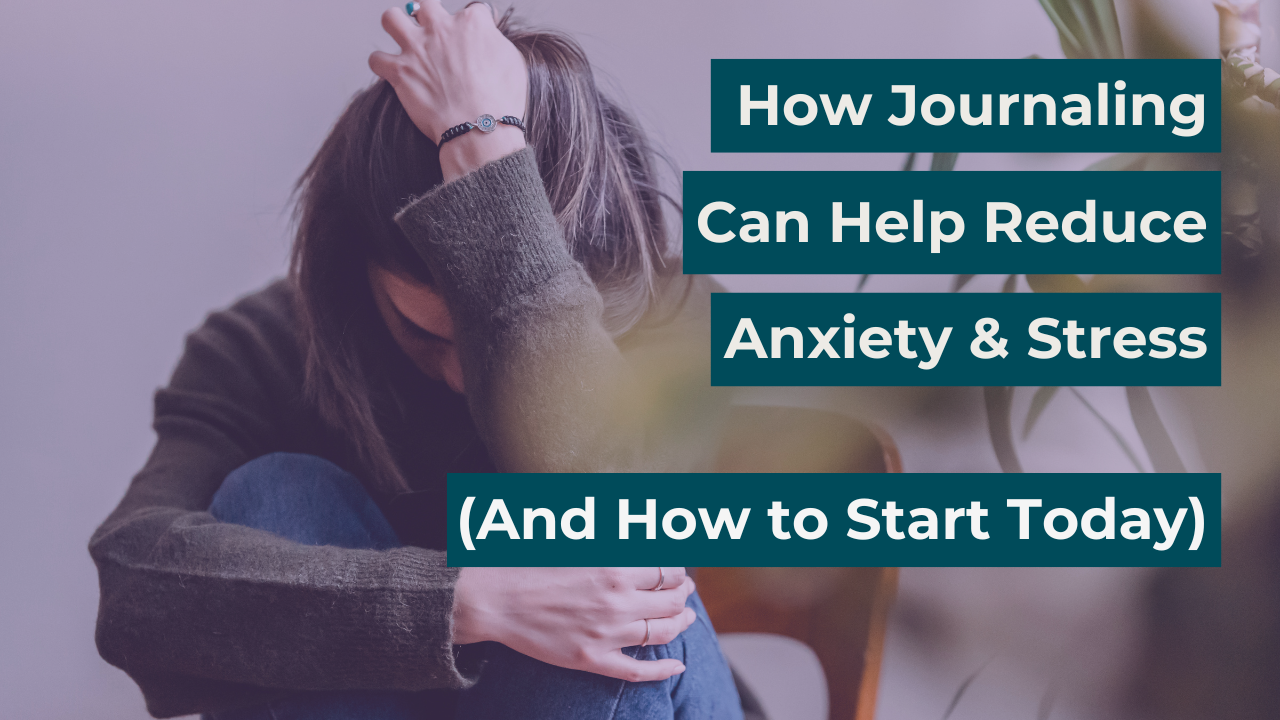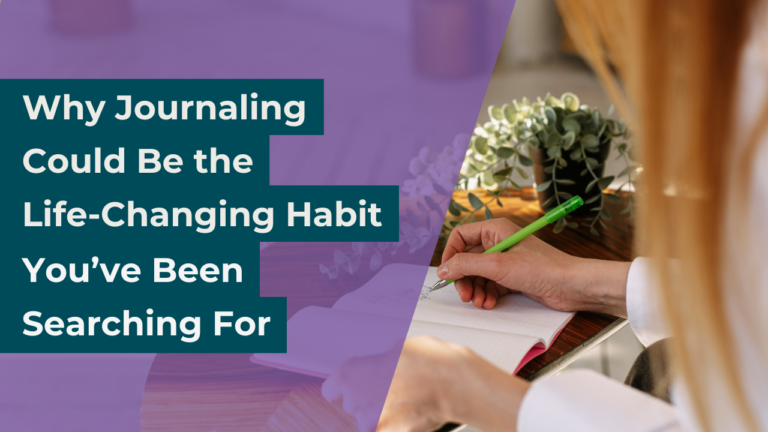How Journaling Can Help Reduce Anxiety & Stress (And How to Start Today)

Introduction
Feeling Overwhelmed? You’re Not Alone
You wake up with a racing mind, already anxious about the day ahead.
Your to-do list feels endless, your thoughts spiral, and stress builds up before you even step out of bed.
If this sounds familiar, you’re not alone.
Anxiety and stress affect millions of women every day.
It leaves them feeling stuck, exhausted, and emotionally drained.
There is however a simple, science-backed tool that can help you calm your mind, process your emotions, and regain control of your thoughts.
That’s where journaling for anxiety and stress relief comes in.
Journaling isn’t just about writing in a diary. It’s a powerful practice that can:
- rewire your brain
- reduce negative thought patterns
- help you feel more grounded and at peace.
In this post, you’ll learn how journaling works, plus discover the best techniques for stress relief.
You’ll also get a step-by-step guide to start your own journaling practice today.
Why Journaling Works for Anxiety & Stress
1. Journaling Helps You Process and Release Negative Emotions
Anxiety loves a cluttered mind. When we keep our worries bottled up, they build tension, leading to even more stress. Writing down your thoughts acts as an emotional release, helping you let go of mental clutter and gain clarity.
Research from Dr. James Pennebaker, a psychology professor at the University of Texas, found that expressive writing helps people manage emotions and reduce stress.
2. Journaling Helps You Identify Anxiety Triggers
Often, stress and anxiety feel overwhelming because we don’t always understand what’s causing them. By writing daily, you can start recognizing patterns—certain situations, thoughts, or people that trigger your anxiety. This awareness empowers you to make conscious changes.
3. Writing Helps Rewire Negative Thought Patterns
Cognitive behavioral therapy (CBT) teaches that our thoughts are influenced by our emotions. By journaling, you can catch negative thought loops, challenge them, and reframe them into healthier beliefs. This is called cognitive reframing, and it’s a proven method for anxiety relief.
4. Journaling Helps You Find a Sense of Control
Anxiety can come up at times when you’re feeling powerless. Journaling gives you back control. It allows you to structure your thoughts, set intentions, and create action plans. This in turn helps you move from feeling stuck to feeling empowered.
5 Proven Journaling Techniques for Stress Relief
If you’re ready to start journaling but don’t know what to write about, try these powerful techniques:
1. Brain Dump Journaling (Best for Overwhelmed Minds)
Simply write everything that’s on your mind, without filtering or editing.
Let it flow for 5-10 minutes, releasing stress onto the page.
Once you’re done, take a deep breath and close the journal—your mind will feel lighter.
2. Guided Journal Prompts for Anxiety Relief
Use structured questions to help process emotions. Here are some powerful ones:
What is one thing I can control today?
What thoughts are making me anxious right now? Are they 100% true?
What would I tell a friend going through the same situation?
3. Gratitude Journaling (Best for Reframing Negative Thoughts)
Write down 3 things you’re grateful for every morning.
This rewires the brain to focus on positive experiences instead of stress.
4. The Stress Log (Best for Identifying Triggers)
Each time you feel anxious, write down what happened, how you felt, and how you responded.
Over time, this helps you recognize triggers and make proactive changes.
5. Future Self Journaling (Best for Building Resilience)
Write as if your future self is giving you advice.
Example: “I know you’re anxious today, but trust me, everything works out. Keep going.”
How to Make Journaling a Daily Habit
When Should You Journal?
Morning Journaling: Clears your mind for the day ahead.
Evening Journaling: Helps process emotions and unwind.
Whenever You Feel Overwhelmed: Keep a small notebook with you to jot down thoughts when anxiety strikes.
How to Stay Consistent
Set a 5-minute timer—you don’t need to write a lot.
Keep your journal by your bedside as a reminder.
Try a journaling challenge (like a 21-day journaling plan for anxiety relief).
Your Next Step: Start Journaling for a Calmer Mind Today
Imagine waking up tomorrow with a clear, calm mind.
No more spiraling thoughts, no more stress weighing you down.
Journaling can help you get there, and it only takes a few minutes a day.
Ready to start? Here’s how: Download your free journal prompts guide. (Instant access—click here!)
Final Thought: Your mind deserves peace. Your thoughts deserve space. Pick up a pen today and give yourself the gift of clarity and calm. 💛






